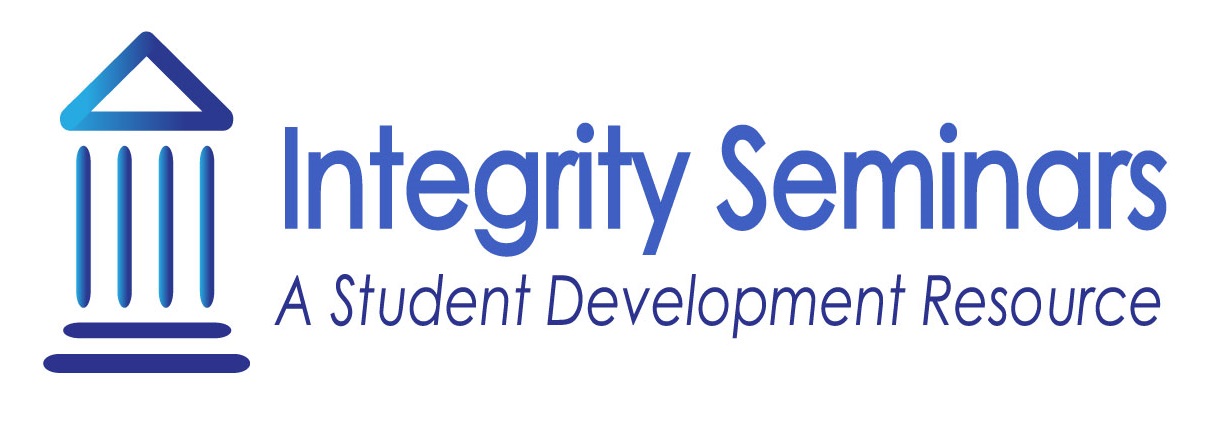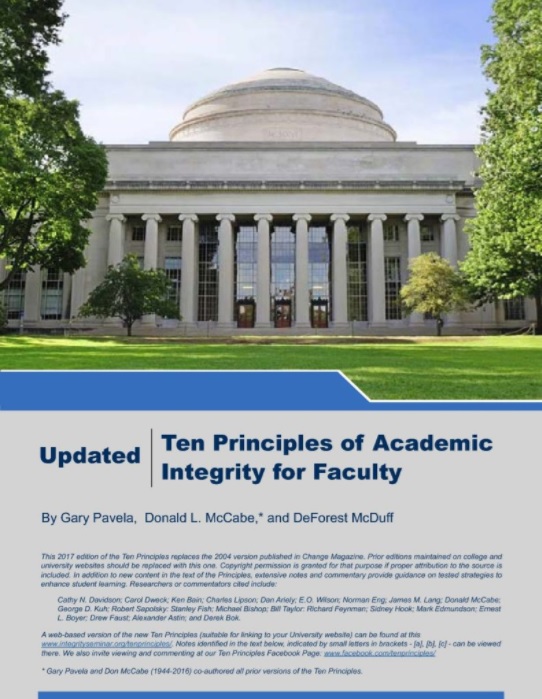Core Objectives
Integrity Seminars has several key objectives:
- Emphasize the impact of dishonesty as a breach of trust in an academic setting.
- Help students understand the importance of social trust, self-discipline, and mutual obligation to individuals and societies.
- Highlight implicit ethical components of the scientific method, including truthfulness and a willingness to accept constructive criticism.
- Draw upon literature from diverse traditions (including China and India) to help students appreciate the universal importance of personal responsibility and social trust.
- Provide exercises that enhance critical thinking skills and help students write persuasive, well-reasoned responses.
Ten Principles of Academic Integrity
Our Seminar is based on ideas and approaches outlined in the Ten Principles of Academic Integrity for Faculty (Updated 2025), by Gary Pavela, Don McCabe, and DeForest McDuff.
One of our leading principles relates to the important connection between the student and the teacher:
“Affirm the role of teachers as guides and mentors. Faculty members are uniquely situated to influence students’ knowledge and decision-making for a lifetime. From the days of Plato’s Academy, teaching was seen as encompassing relationships of trust grounded in the pursuit of truth. Teachers will find that their greatest impact on students–including inspiring a commitment to academic integrity–comes in the context of personal connection and mutual respect.”
School of Athens
IS’ educational philosophy is exemplified in this image from Raphael’s fresco The School of Athens:
Astute observers will recognize Raphael’s image of Plato on the left and Aristotle on the right (teacher and student engaged in dialogue). They represent our ideal of the teacher-student relationship: partnership in the pursuit of learning.



